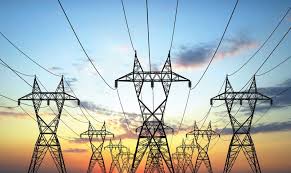Nigeria’s Ministry of Power has announced that the country recorded a three-year high of 5,313 megawatts on Monday, September 2, 2024.
The ministry said in a statement that electricity distributors had been urged to ensure the distribution of the generated power.
“The national grid on Monday hit a record high of 5,313MW, a record high in the last three years,” the statement said.
According to the statement, Nigeria’s Minister of Power, Mr. Adebayo Adelabu, who reacted to this development from China where he is attending the China–Africa Cooperation Summit, called on power distribution companies in Nigeria to take more energy to prevent the grid from collapsing since the grid’s frequency drops when power is produced and not picked by power distributors.
He added that efforts would be made to encourage industries to purchase bulk energy.
Meanwhile, the MoU signing ceremony, facilitated by the Rural Electrification Agency, was attended by Adelabu and the Managing Director of REA, Mr Abba Aliyu.
The event took place in Beijing on the eve of the opening ceremony of the African-China Co-operation Summit.
Adelabu said that the MoU event was important and will be a memorable day for Nigeria.
He congratulated the REA and the National Power Training Institute of Nigeria for the event, saying it will aid in achieving Nigeria’s vision for the renewable energy sub-sector of the entire electricity sector value chain.
“I know Nigeria and China have a lot of things in common, one of which is the fact that Nigeria and China are both high-population countries and with a country with a high population, you have so much pressure.
“The first pressure is that of energy access and the second is job creation. So when you take steps to achieve both, it is a thing of joy. I am particularly happy that this is happening during the tenure of President Bola Tinubu, as it is in line with achieving the Renewed Hope Agenda of the administration for the country,” he said.
The minister said Tinubu has prioritised the power sector as the driver for all other critical sectors of the Nigerian economy.
GIK/APA


